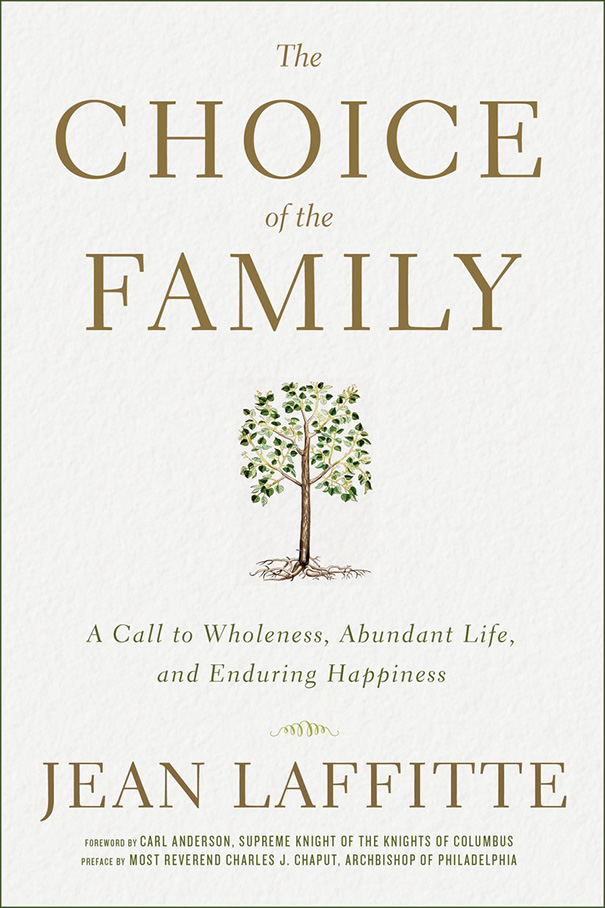Vatican Official Offers Blunt Talk and Deep Wisdom About Family Life

Abundant life and enduring happiness: Those are among the blessings which come in family life. Pope Francis has spoken frequently about the family this year, as the Catholic Church gears up for the World Meeting of Families on September 22-25 in Philadelphia, and the Synod on the Family October 4-25 in Rome.
In January 2015, speaking to crowds at the Mall of Asia Arena in the Philippines, Pope Francis said that what is needed are “holy and loving families to protect the beauty and truth of the family in God's plan.” And visiting Latin America in July, the Holy Father told Ecuadorians, “In a family, parents, grandparents, and children feel at home; no one is excluded.” He described the family as the primary cell of society, explaining that in the family “we find the basic values of love, fraternity and mutual respect, which translate into essential values for society as a whole: gratitude, solidarity and subsidiarity.”
On September 1, Image Books will release a new resource for the domestic church, Bishop Jean Laffitte's The Choice of the Family: A Call to Wholeness, Abundant Life, and Enduring Happiness. Bishop Laffitte. secretary of the Pontifical Council for the Family, expressed his hope that all families would come to understand more profoundly God's design for human love.
In a series of interviews with Pierre and Véronique Sanchez, Bishop Laffitte recounts stories from his own childhood, growing up the youngest of twelve children in a loving family and seeing his own mother's extreme sense of service. “What was apparent in her,” he said, “was a fundamental benevolence, an active kindness, to which could be added great discretion in the respect of each child and his interior life. She saw each of her children as single and unique. She was a great woman of faith and goodness.”
Bishop Laffitte spoke, too, of the solidarity within his large family, of his parents' honest and upright example. He confessed that as an adolescent during the tumultous years surrounding the Second Vatican Council, he had distanced himself from the religious experience of his childhood—and how later, as an adult, he had to adopt as his own the faith that he had received.
Turning his attention from his own family of origin, to the families he hopes to inspire in his role as secretary of the Pontifical Council for the Family, Bishop Laffitte offers theological and practical insights.
But he pulls no punches: Bishop Laffitte speaks honestly about the problem of cohabitation, patiently explaining the theology which shapes Church teaching regarding chastity and the call to remain celibate until marriage. He challenges young engaged couples to make the radical choice for love and thus for its demands of purity, and he challenges those who prepare couples for marriage to say the hard things. “Today,” he says, “it is still relevant to prepare one's heart for the extraordinary encounter of being loved, alongside the person with whom he will unite his life in Christ.... It must be understood, but in order to understand it, one must have heard it from the mouth of people who believe in I. I don't see why I wouldn't tell this to people who want to get married but who are living together.”
Oh, and divorce is a serious and too common issue in today's society, of course. Bishop Laffitte bemoans the difficulty that people have in realizing that they can—in fact, they must—be committed forever. “People no longer distinguish,” he says, “between a commitment for always and a commitment for as long as possible. They think in all sincerity that they are getting married for as long as possible.”
For those who do find themselves divorced, Bishop Laffitte acknowledges the pain that accompanies being unable to receive the Eucharist. Perhaps annulment can be pursued, and the person's relationship with the Church can be regularized. If not, however, he offers encouragement for those who may not receive the Body and Blood of Christ, without suggesting that the Church law may be changed: “Those who have made the interior journey of accepting not to Communicate,” he says, “give a true testimony of love for the Church, which even leads certain persons among them to commit within spiritual families or associations to helping those who find themselves in the same situation.” He goes on to discuss the possibility of a husband and wife making the difficult choice to live as brother and sister.
Bishop Laffitte faces head-on the challenges created by our sexually charged society, problems including infidelity and estrangement, civil unions, AIDS and other sexually transmitted diseases. When he engages the reader regarding the difficulty
There's more, so much more. Bishop Laffitte discusses difficulties within the family, the plight of the elderly, the conflicting responsibilities of motherhood and work. On every topic, his wisdom and his skill of gentle persuasion are evident.
The book includes an Introduction by Carl Anderson, Supreme Knight of the Knights of Columbus, who writes about the richness of family life. There is a Preface by Charles J. Chaput, O.F.M. Cap., Archbishop of Philadelphia, who writes of marriage as “vocation” and the family as an intimate, personal community in which a child, in observing his or her parents, learns those basic values—such as loyalty, honesty and selfless concern—which build up the character of the wider society.
The Choice of the Family will be available September 1, and is an excellent preparation for the Church's upcoming meeting in Philadelphia and for the Synod on the Family.













